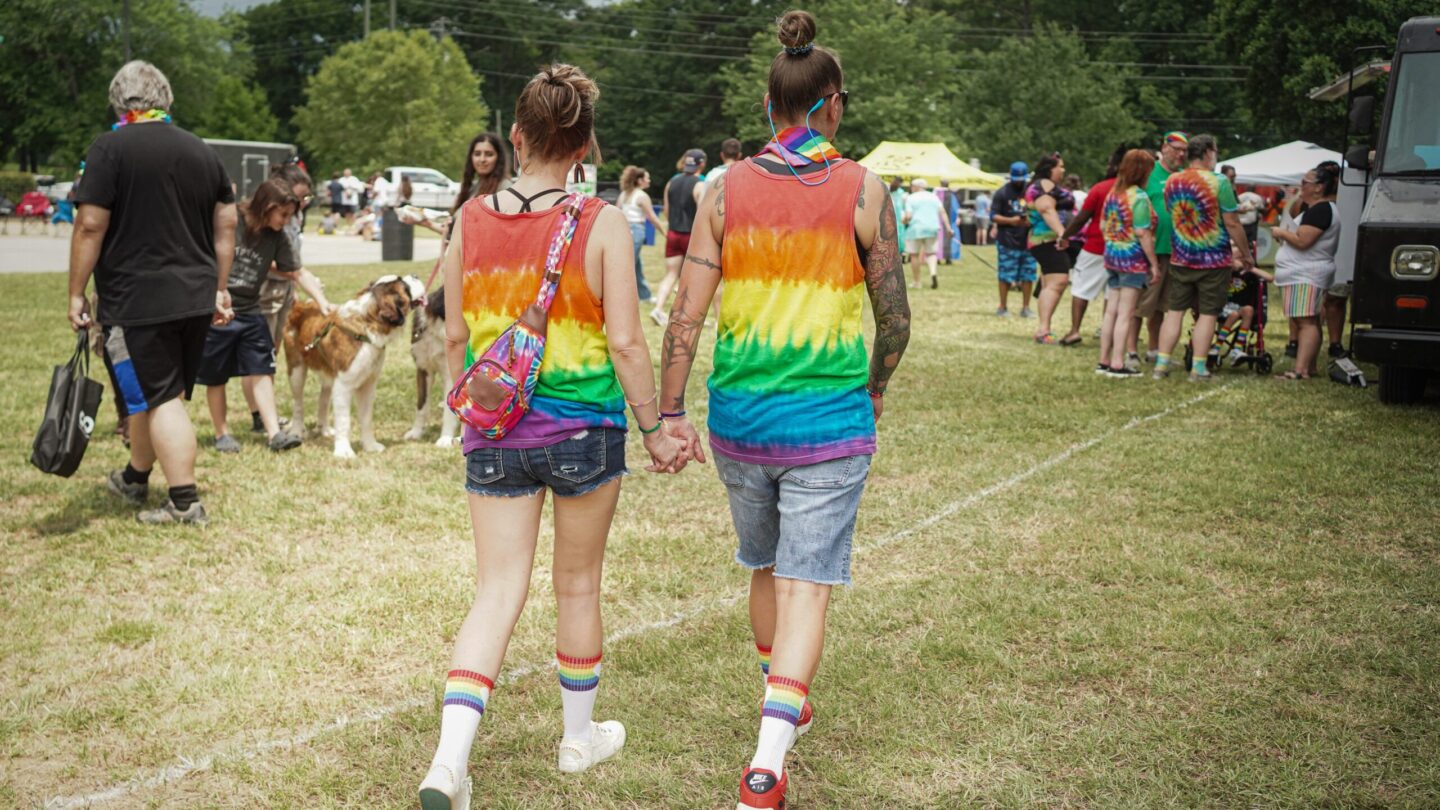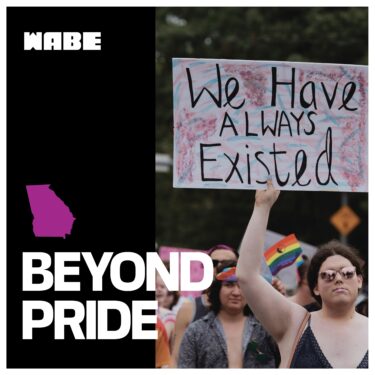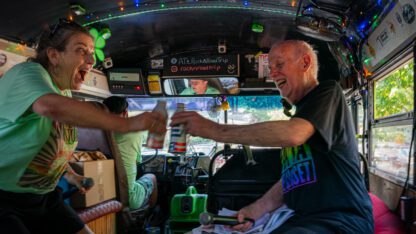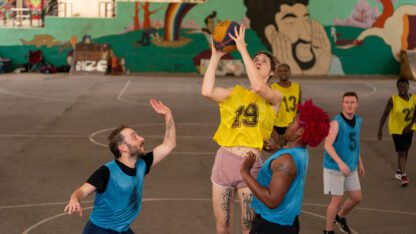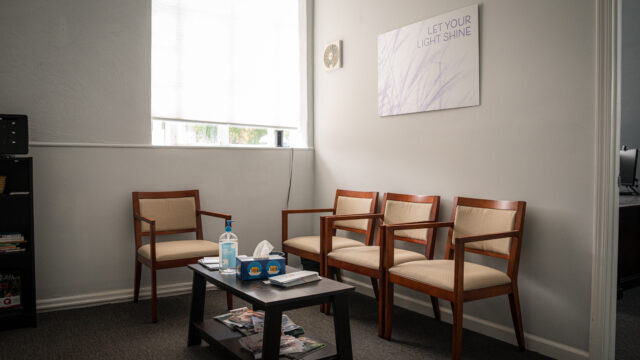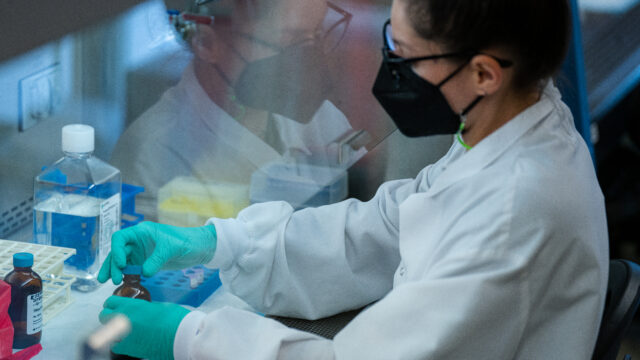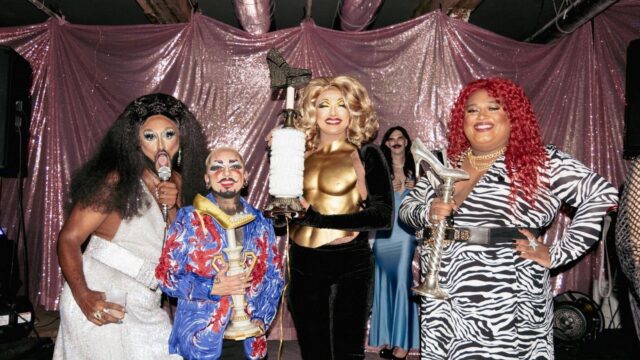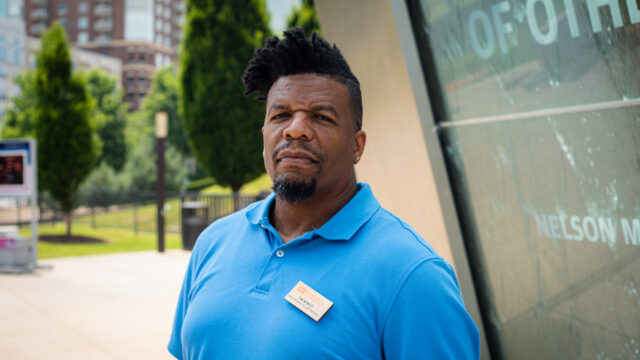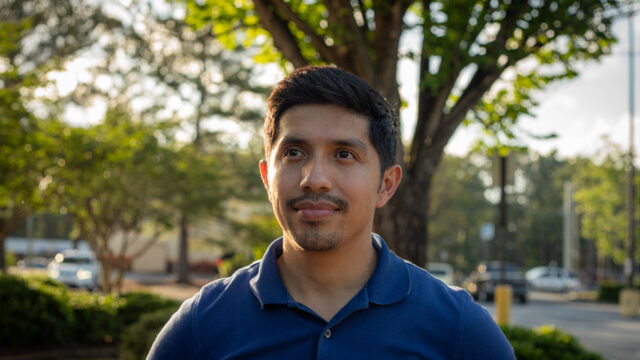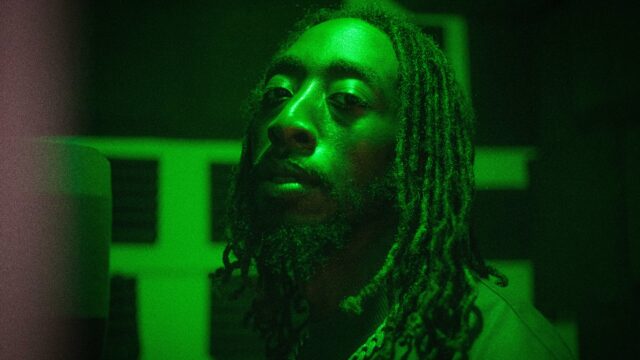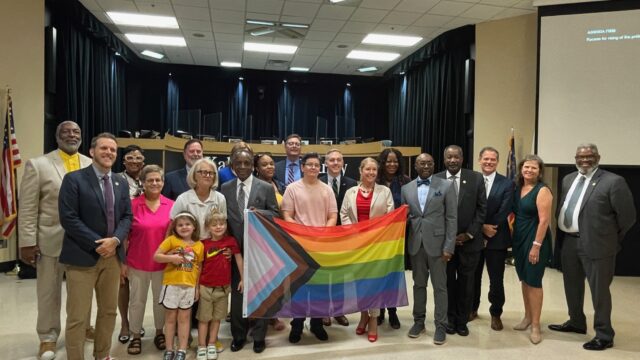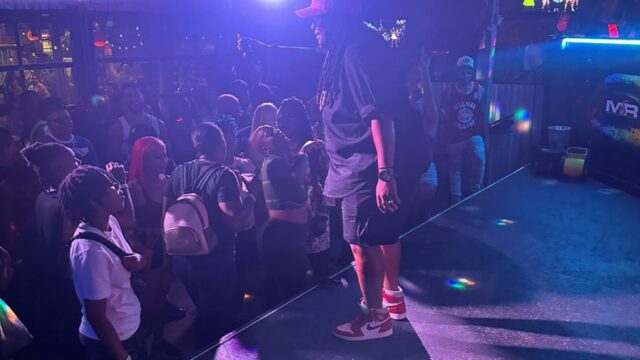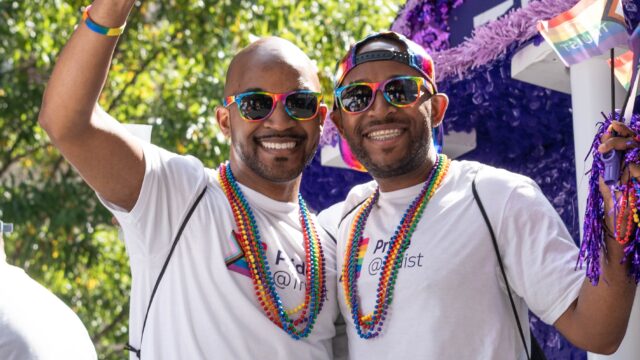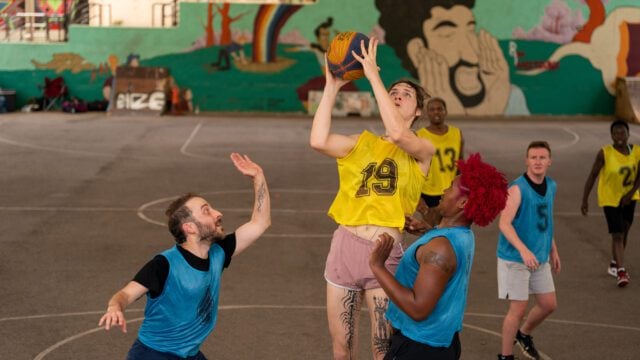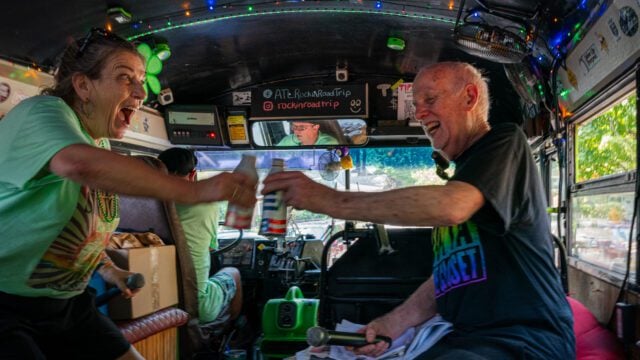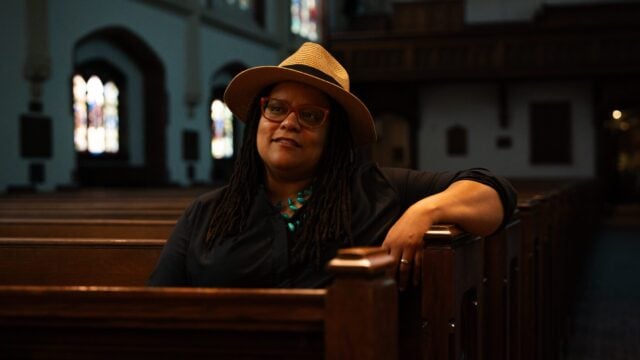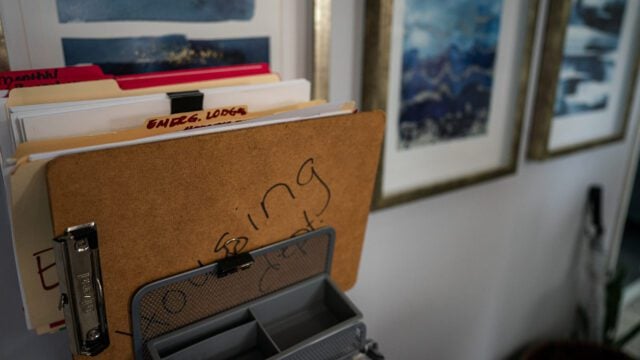Over 4,000 people came to Rome, Georgia to celebrate the city’s 3rd annual Pride festival and parade the last weekend of June.
“A lot of people come to Rome Pride for a small-town-feel,” says Lynn Green, the president of PFLAG Rome — a nonprofit organization whose mission is creating a caring, just and affirming world for LGBTQ people.
Green says she created the PFLAG Rome chapter after her son transitioned four years ago.
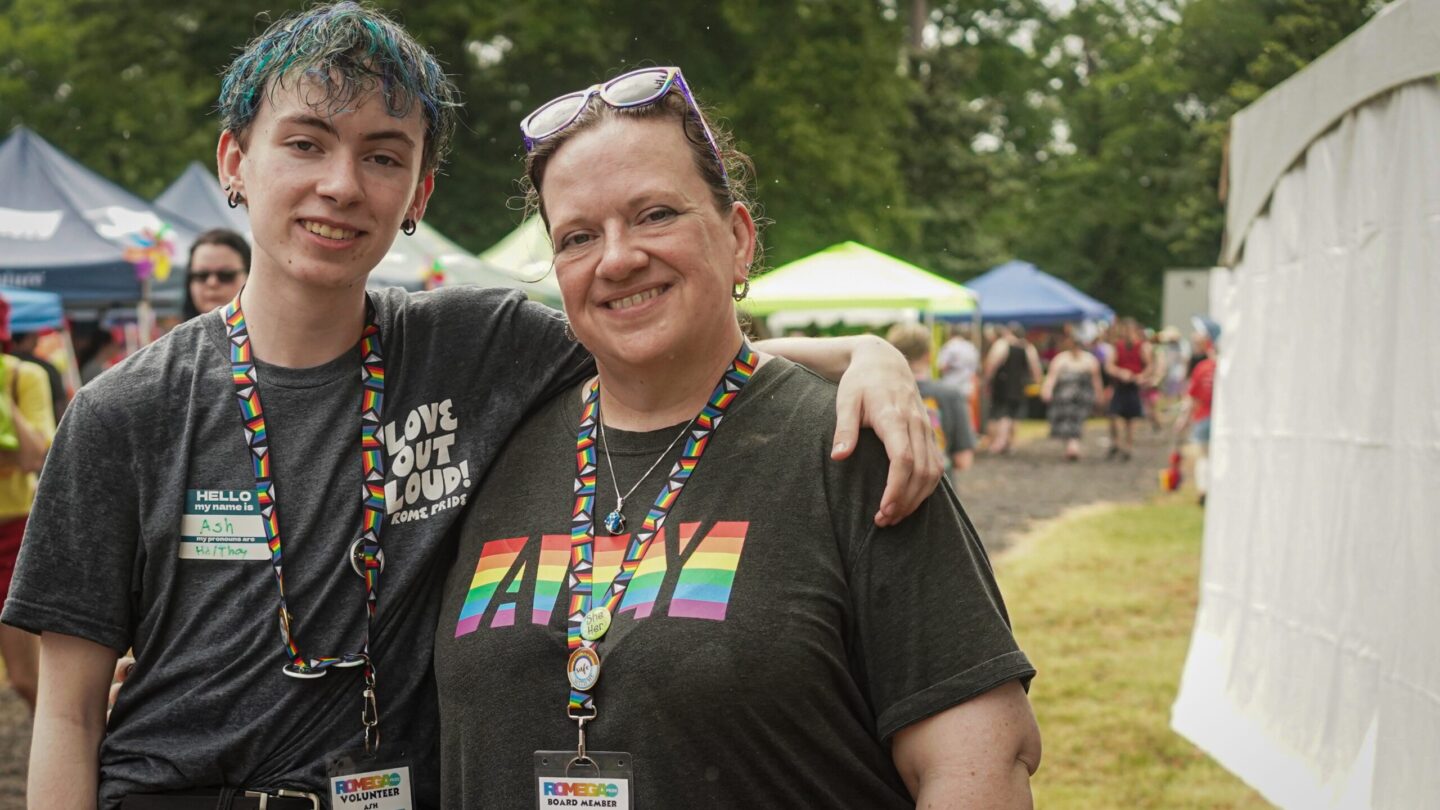
Before the PFLAG chapter was founded, Green says there was very little LGBTQ representation in the community she describes as a very conservative, mostly Republican area. Donald Trump won Floyd County with 70% of the vote in 2020.
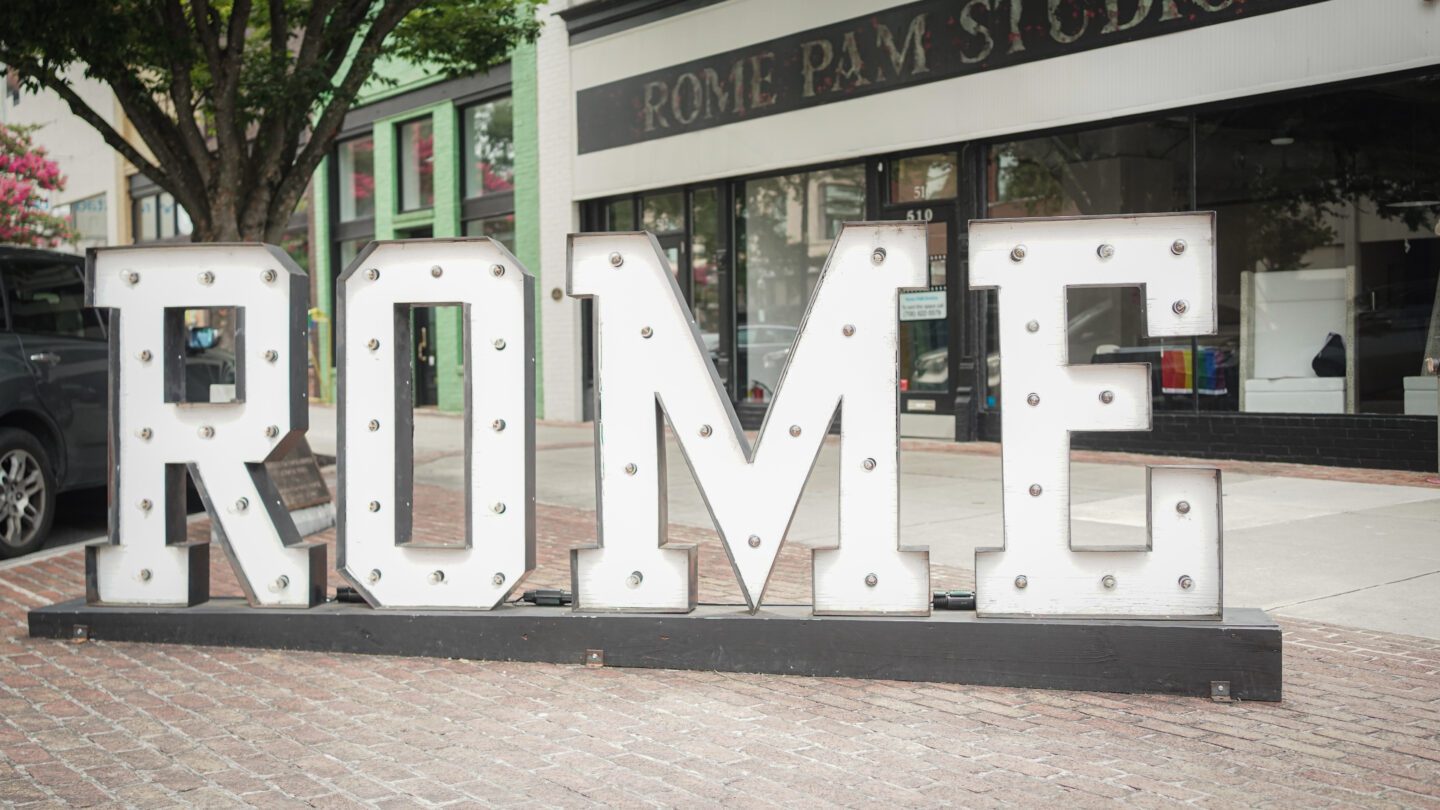
Rome has over 35,000 residents and is located in Northwest Georgia’s Floyd County — an area represented by U.S. Rep. Marjorie Taylor Greene, who has advocated against transgender rights in Congress multiple times.
“Whether she agrees or disagrees, there’s room for everybody here,” says Lindsey Newman with a rainbow flag in hand. “Everybody deserves to have a day, or to celebrate in a certain way.”
Newman has lived in Rome for several years and says there is a thriving and growing LGBTQ community.
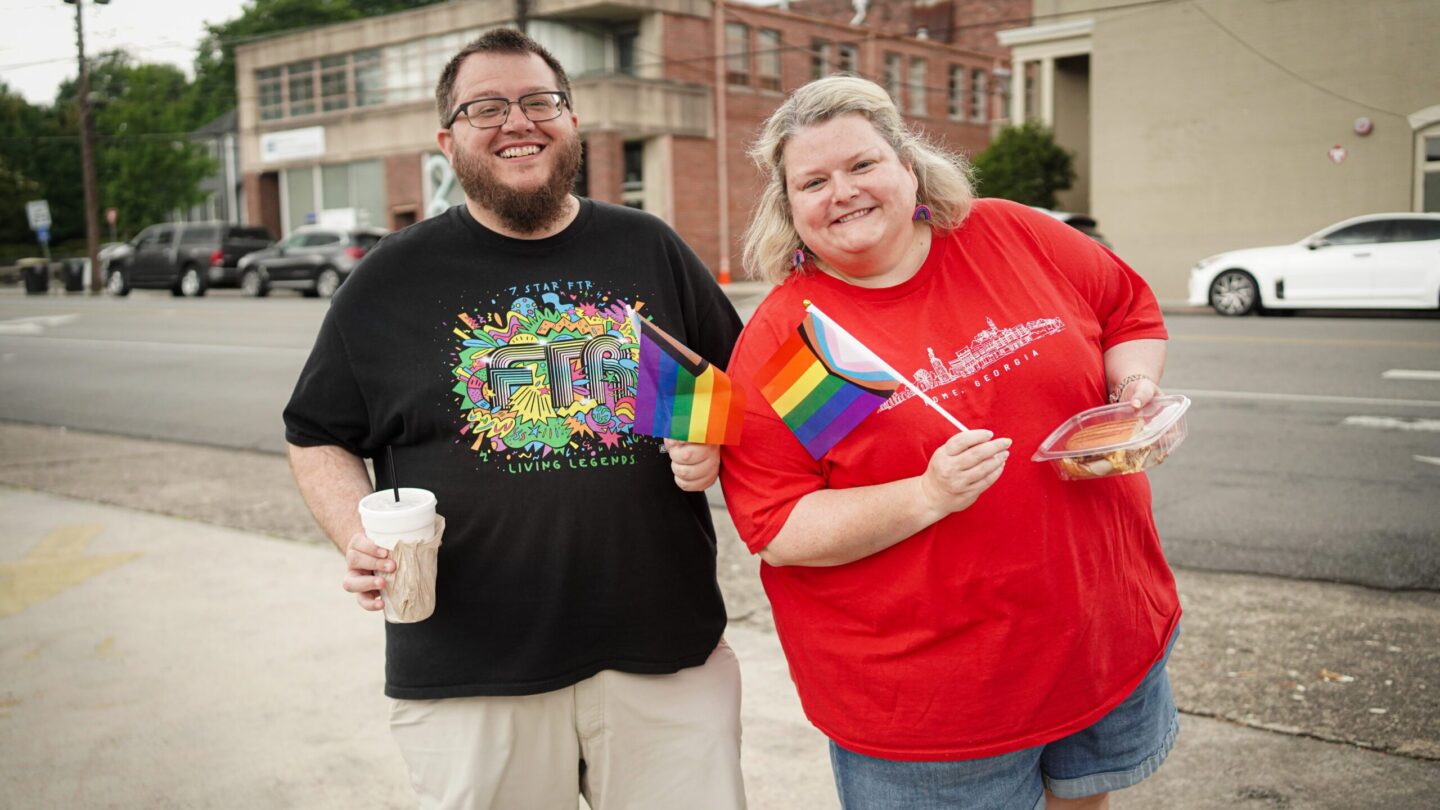
“People were very friendly today,” Newman said. “There weren’t anyone who was out counter-protesting or being unkind. It was a good, good vibe.”
“Everybody deserves to have a day, or to celebrate in a certain way.”
Lindsay Newman
On the same street in downtown Rome stood 19-year-old Wren Webber, who was celebrating with a group of friends.
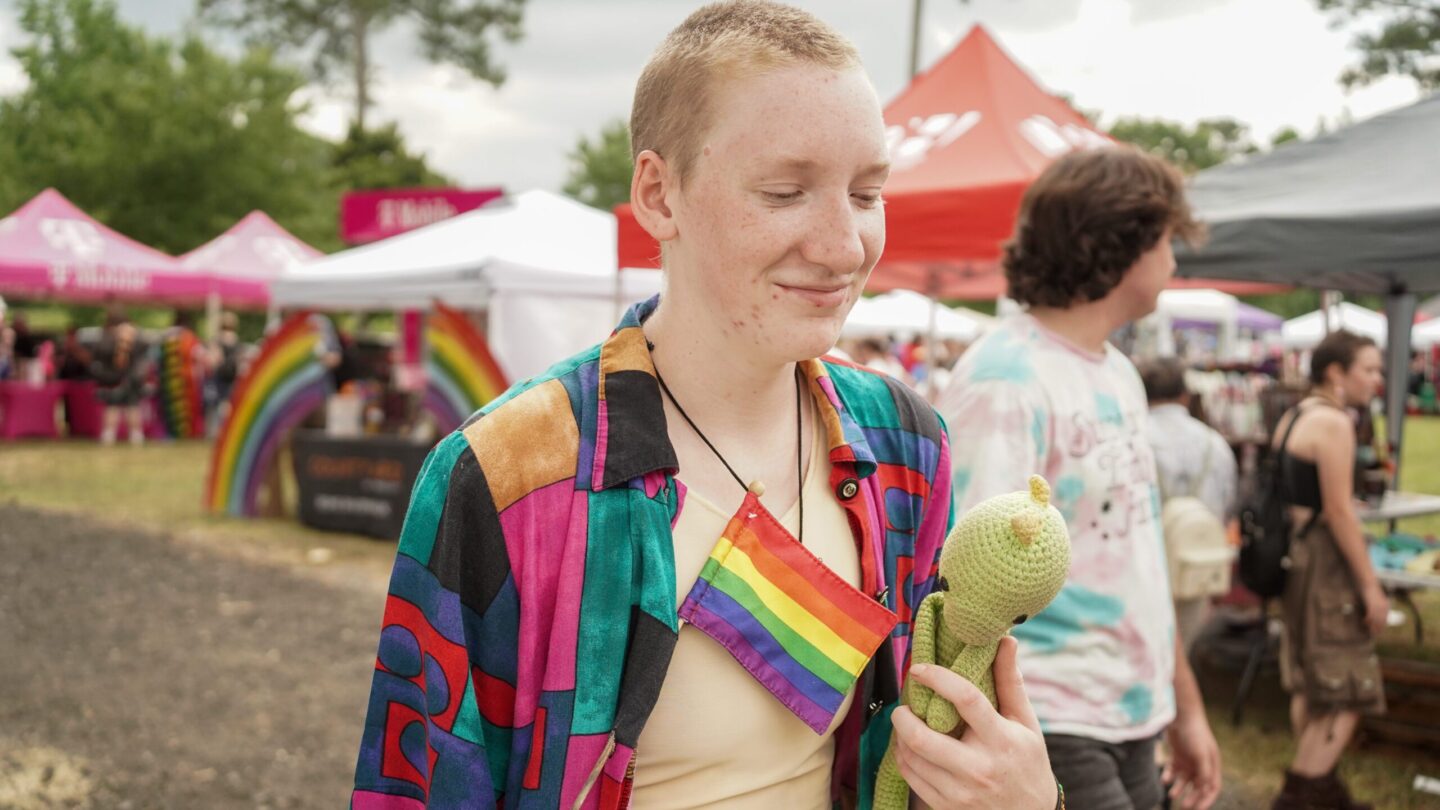
Webber, a transgender man who was born and raised in Rome, acknowledges his polarized community but says, “I was definitely really lucky to just have to be able to grow up and not feel like I was in immediate danger of who I was.”
According to the LGBTQ advocacy organization the Human Rights Campaign, LGBTQ youth whose families affirm their gender identity and sexual orientation are nearly half as likely to make a suicide attempt compared to those whose families are unsupportive.
Webber says, “I think it’s really important for a lot of LGBTQ people’s mental health to like, recognize that there are other people around that are like them.”
Organizers say this year’s Rome Pride was a big upgrade from last year. The festival had around 40 vendors last year. Over 100 participated in the vendors market this year, prompting the festival to be moved to the city’s Rich Ferry Park.
A team of WABE reporters take a deeper look at the issues affecting LGBTQ people in Georgia. Plus, LGBTQ Atlantans in their own words, Pride events calendar, LGBTQ coverage from other NPR stations across the South and more.
Rome Pride received a $5,000 grant from “Pride Across the Peach State,” which aims to build community and promote LGBTQ inclusion throughout Georgia.
Inclusion that Rome Pride vendor Lucy Long-Patterson says was not present in her hometown of Canton.
“I’m kind of almost unfamiliar with the feeling of Pride especially in this kind of setting because it’s so repressed where I’m from,” she said.
As a kid, Long-Patterson says she thought everything about Pride was wrong, even though she is bisexual.
“Being here reminds little me that she didn’t fail anything. And that’s nice,” she said. “That’s a really good feeling.”
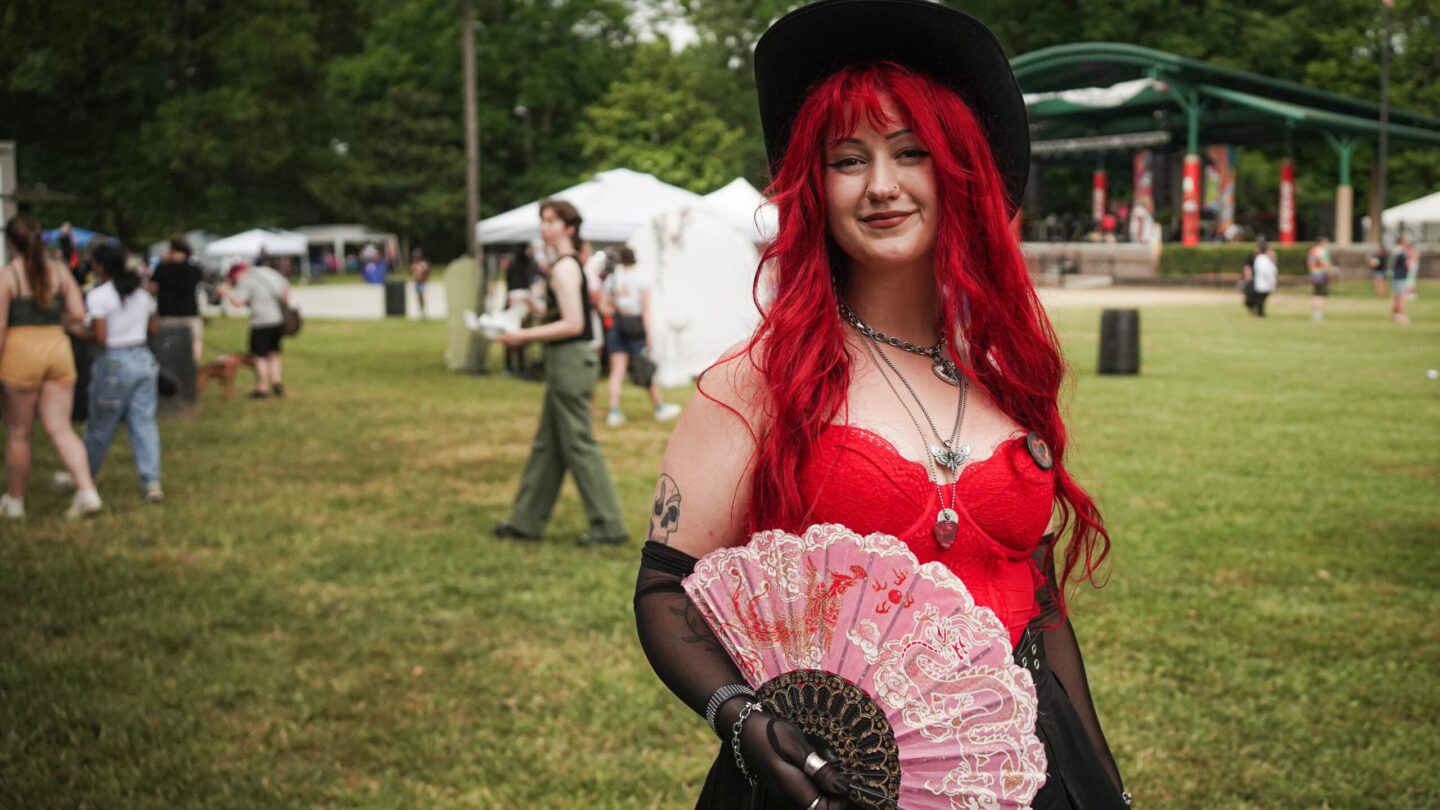
Despite an afternoon shower dumping inches of rain on the festival grounds, attendees and locals embraced the good vibes. People were greeted with smiles, hugs and “Happy Pride” remarks.
“I feel like it is such a big opportunity for Rome to expand a little bit more,” says Brooke Callaway, “Because we need it. We definitely need it for sure.”
Calloway grew up in Rome and runs a small business in town.
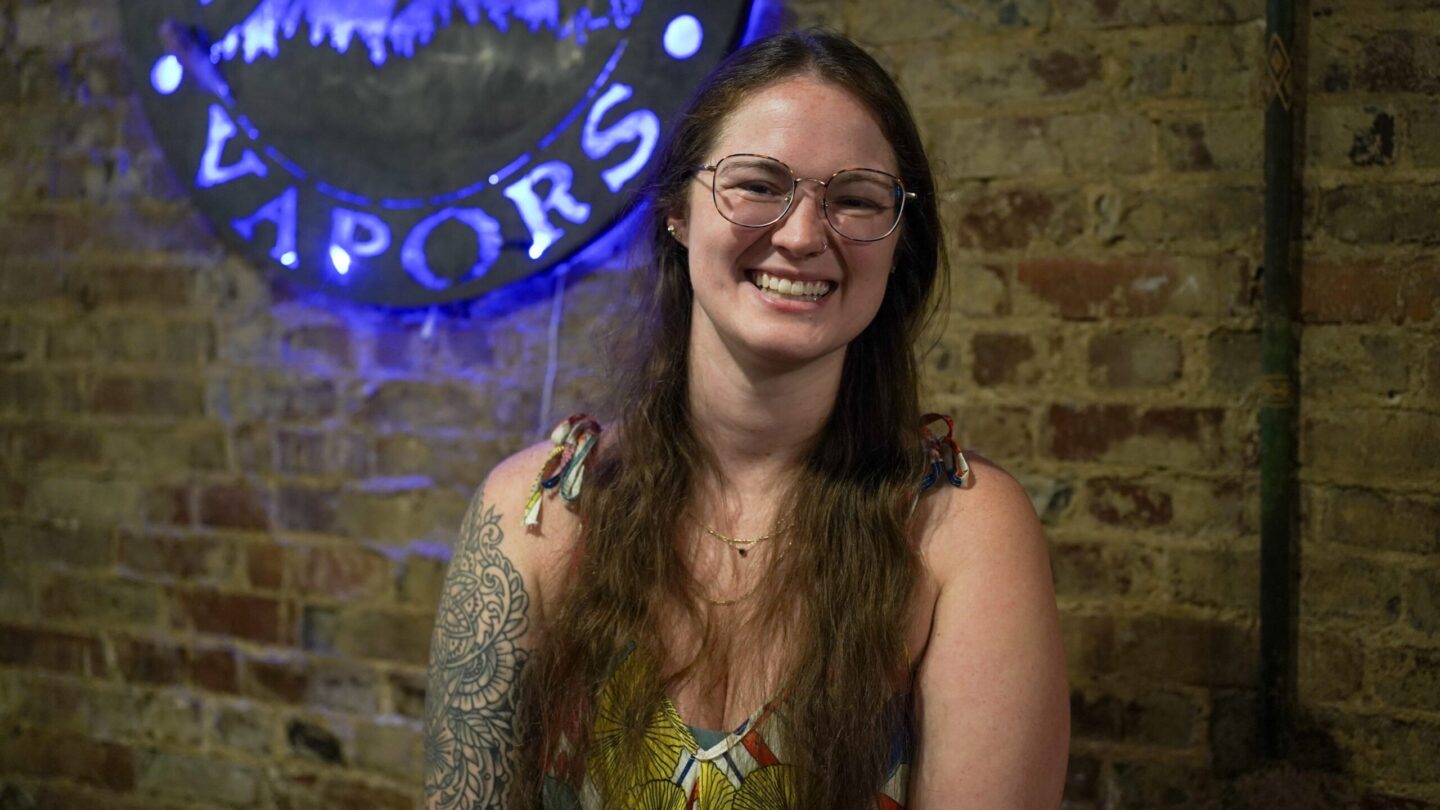
She says even though the town has conservative roots, people are willing to adapt.
“It’s [Pride], not like a new thing,” she said. “But also it kind of is. So it’s like, it’s all learning. And I’m like, I’m willing to learn, like, we can do this.”
Callaway says this is how change begins.
And maybe that change is happening. Last year, there were protests. This year, there were no major demonstrations.
This story is part of the ongoing series Beyond Pride, in which WABE reporters take a deeper look at the issues affecting LGBTQ people in Georgia. Plus, hear LGBTQ Atlantans in their own words, check out a Pride events calendar running through the fall, LGBTQ coverage from other NPR stations across the South and more.
